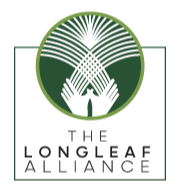Partners
Click the button on the right site to add an Organization. Include a logo plus 2-3 sentences on each major partner but don’t create new content if they are already in Landscape Partnerships Partner list. Organization must be tagged (Categorization tab) "Aquatics" to appear in this list.
North Carolina Natural Heritage Program
North Carolina Natural Heritage Program's mission is to provide science and incentives to inform conservation decisions and support conservation of significant natural areas in North Carolina. By gathering and sharing information about rare species and natural communities, the Program ensures public access to information that is needed to weigh the ecological significance of natural areas and to evaluate potential ecological impacts of conservation and development projects. The Program sits within the North Carolina Department of Natural and Cultural Resources.
Partners in Amphibian and Reptile Conservation
Partners in Amphibian and Reptile Conservation (PARC) is an inclusive partnership dedicated to the conservation of the herpetofauna--reptiles and amphibians--and their habitats. Our membership comes from all walks of life and includes individuals from state and federal agencies, conservation organizations, museums, pet trade industry, nature centers, zoos, energy industry, universities, herpetological organizations, research laboratories, forest industries, and environmental consultants. The diversity of our membership makes PARC the most comprehensive conservation effort ever undertaken for amphibians and reptiles.
Southeastern Hellbender Conservation Initiative
The Southeastern Hellbender Conservation Initiative (SEHCI), a collaboration between Defenders of Wildlife, NRCS and other conservation partners to support farmers using conservation practices on their lands that help restore hellbender habitat.
USDA Natural Resources Conservation Service (NRCS)
NRCS helps America’s farmers, ranchers and forest landowners conserve the nation’s soil, water, air and other natural resources. All programs are voluntary and offer science-based solutions that benefit both the landowner and the environment.


























